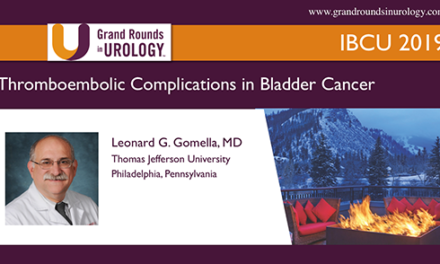
Role of Radical Cystectomy in Non-Organ Confined Bladder Cancer: A Systematic Review
Abstract
Currently, a diagnosis of non-organ confined bladder cancer (NOCBCa) confers a grave prognosis. The mainstay of treatment consists of systemic chemotherapy. However, it must be recognized that NOCBCa is a heterogeneous disease state with important clinical distinctions. While surgical extirpation has traditionally been regarded as overly aggressive for all NOCBCa patients, its utility as part of a multimodal treatment strategy in various clinical scenarios has not been thoroughly investigated.
To perform a review of the literature regarding the role of radical cystectomy and pelvic lymph node dissection (RC-LND) in the setting of NOCBCa.
Medline, and Pubmed electronic database were queried for English language articles from January 1990 to Nov 2016 on RC-LND for cT4, lymph node positive, and metastatic urothelial cancer. NOCBCa was separated into four distinct clinical scenarios: 1. Locally advanced/unresectable disease (cT4bN0M0); 2. Occult pelvic nodal disease (pN+) (cTxN0M0 and pTxN1-3Mx); 3. Clinical node positive disease (cN+) (cTxN1-3M0); and 4. Distant metastatic disease (TxNxM1). Evidence for the role of RC-LND in each of these clinical scenarios was summarized.
cT4b may be more effectively treated by presurgical chemotherapy (PSC) than other forms of NOCBCa. Although clinical response predicted improved survival, surgical factors, such as surgical margin status may also play a role in determining outcomes. In well selected patients, 5-year CSS may reach 60% after consolidative RC-LND. Survival in patients found to have pathologic nodal metastases without PSC was dictated not only by the histologically verified metastatic nodal disease burden, but also by the meticulousness of the lymph node dissection. In these patients, adjuvant chemotherapy may improve survival. On the other hand, in patients undergoing RC-LND after PSC, pathologic complete response (pCR) was the strongest predictor of improved CSS. The results of population based studies have suggested a therapeutic role by consolidative RC-LND in both patients with cN+ and metastatic BCa (mBCa). For the cN+ population, 5-year OS was 31% in patients undergoing RC-LND after PSC vs. 14% in those receiving chemotherapy alone. Similarly, consolidative intensive local therapy improved OS by approximately 5 months in patients with mBCa. Metastasectomy has also been shown to be effective in small retrospective series and may especially be useful in patients with solitary pulmonary lesions.
Extirpative treatment of the primary tumor may be an important step in the management of de novo NOCBCa. The current retrospective and population based studies have demonstrated improved survival outcomes in patients with NOCBCa following RC-LND, especially in those with favorable response to PSC. With the advent of minimally invasive surgery and the enhanced post-surgical recovery protocols, RC-LND has not only been demonstrated to be feasible, but also tolerable in the setting of advanced BCa. Well designed, prospective trials are needed to definitively assess the value of surgical extirpation for NOCBCa patients.
Authors: Li, Roger | Metcalfe, Michael | Kukreja, Janet | Navai, Neema
Journal: Bladder Cancer, vol. 4, no. 1, pp. 31-40, 2018
Keywords: Radical cystectomy, non-organ confined bladder cancer, metastatic bladder cancer




